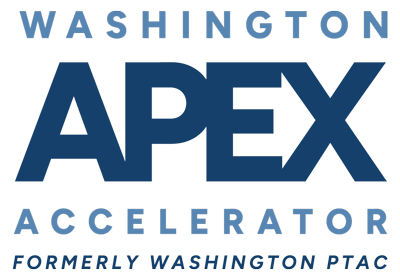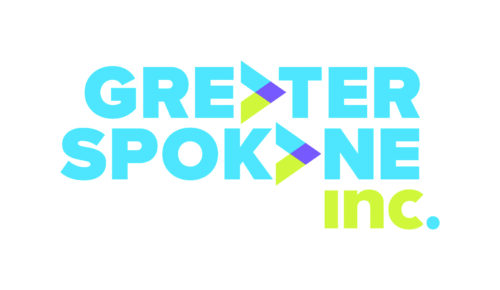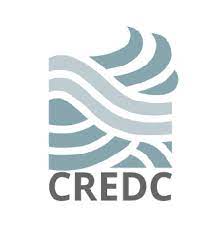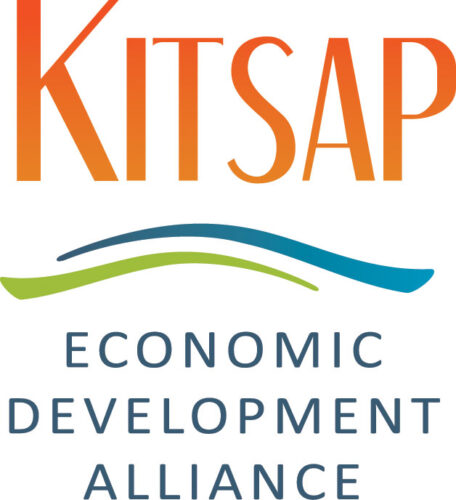In our previous blog article, we discussed the Federal Circuit’s decision in Inserso Corp. v. United States, 961 F.3d 1343 (Fed. Cir. 2020), in which a split panel held a protest cannot be brought in the U.S. Court of Federal Claims (“COFC”) if, before the time of proposal submission, “the law and facts” made it reasonably known to the contractor that a procurement error was likely to occur under the terms of the solicitation. We analogized the Inserso decision’s application of this waiver rule – known in government contracts law parlance as the Blue & Gold rule – as creating a kind of gambling transaction for government contractors, forcing them to predict what “law” and what “facts” can reasonably be known before proposal submission, lest they risk forfeiting any opportunity for challenging an erroneous procurement decision based on that “law” and those “facts.” In our prior posting, we suggested that Inserso seems to advise offerors to adopt a fairly expansive approach in assessing whether the available “law and facts” merit the filing of an early protest. To wait is to risk the dismissal of your protest; to file may result in otherwise avoidable legal fees and a dismissal of your protest as premature, but – in that event – you will still be “in the game.”
Less than two months after Inserso, the Federal Circuit once again has opined on the application of the Blue & Gold rule, this time in the context of a claim under the Contract Disputes Act, 41 U.S.C. §§ 7101-7109. This time, however, the Court held that the claim had not been waived because it would have been “futile” for the contractor to have lodged a pre-award challenge to the solicitation.
The case – Boeing Co. v. United States, — F.3d — (Fed. Cir. 2020) – involved a contract held by The Boeing Company (“Boeing”) that was subject to the Cost Accounting Standards (“CAS”). Boeing claimed the Government violated the CAS statute when it refused to offset the positive cost impacts of unilateral changes Boeing made to its cost accounting practices with the savings generated by other unilateral changes made by Boeing. The CAS statute provides, “The Federal Government may not recover costs greater than the aggregate increased cost to the Federal Government.” 41 U.S.C. § 1503(b) (emphasis added). The Government, however, took the position that it was prohibited from offsetting in Boeing’s favor by FAR 30.606, which provides that the Government “[s]hall not combine the cost impacts of…[o]ne or more unilateral changes,” “unless all of the cost impacts are increased costs to the [G]overnment.”
The Government asserted a claim against Boeing in the amount of the positive cost impacts of its unilateral changes, which Boeing began to pay until it filed an action in the COFC seeking reimbursement of the amounts paid. Boeing argued that the Government’s application of FAR 30.606 in refusing to offset the positive and negative cost impacts generated by Boeing’s unilateral changes violated the CAS statute. The Government in turn argued Boeing knew or should have known about the apparent conflict between the CAS statute and FAR 30.606 before entering into the contract, and that as a result, Boeing waived the statutory argument by not protesting in advance of proposal submission. The COFC agreed, and granted summary judgment in the Government’s favor on the basis that Boeing forfeited its claim for reimbursement under the Blue & Gold rule by not raising the issue in a timely manner. Boeing appealed the COFC’s decision to the Federal Circuit.
In a decision authored by the same Circuit Judge who authored the Inserso decision, and which was joined by Judge Reyna, who had dissented in Inserso, the Federal Circuit reversed the COFC’s holding that a waiver had occurred. In so ruling, the Court concluded there was no waiver because the Government “has not shown that Boeing bypassed an avenue of relief on the merits from the agency – indeed, has not even shown that Boeing bypassed a judicial forum that would adjudicate its contention on the merits.” In other words, a pre-award protest would have been a futile gesture on the part of the contractor.
The Court noted FAR 30.606’s prohibition against offsetting was mandatory, meaning even if Boeing had objected to the regulation during negotiations, “the agency would have had to reject the objection,” because it “could not lawfully have given Boeing the relief of rejecting application of FAR 30.606 to the contract.” The Government could point to no Circuit precedent extending the Blue & Gold waiver rule to a scenario like Boeing’s, which involved “the inability of the agency itself to grant the relief that the party later sought in court.” Instead, by relying upon Circuit precedent concerning the availability of the equitable doctrine of reformation, the Court determined the waiver rule was meant to reflect “the policy of ensuring that two negotiating parties (whether private or governmental) do what they are able to do to clear up patent ambiguities or defects before formation, thus helping to reduce future litigation and allowing expeditious contract formation.” And because this policy “aligns with the familiar ‘futility’ exception to related requirements for preserving a challenge by first presenting the matter to an agency,” the Court held Boeing did not waive its challenge to FAR 30.606 by not raising it with the contracting agency first, because doing so would have been futile due to the mandatory nature of the regulation.
The Federal Circuit then proceeded to address – although ultimately, not to decide – a matter of first impression: “whether waiver could be found where, though relief from the agency was not available, a contractor or bidder bypassed, during the contract-formation process, an opportunity for a judicial ruling on the merits of the objection later asserted in court.” The Court declined to resolve this question, because even if answered abstractly in the affirmative, the Government could not show Boeing bypassed in this case a judicial avenue that could have decided its claim on the merits during the contract-formation process. The Court addressed this issue from three different perspectives.
First, the Government could not show Boeing could have brought a pre-award bid protest action under the Tucker Act, because:
A. the CAS statute expressly provides for the judicial resolution of disputes over contract price adjustments to take place under the Contract Disputes Act, which applies only post-award; and
B. Boeing’s challenge appeared on its face to involve a matter of contract administration, which again, can only be raised post-award under the Contract Disputes Act
Second, the Government could not show Boeing could have brought an action challenging FAR 30.606 under the Administrative Procedure Act (“APA”), because the CAS statute expressly excludes CAS matters from coverage under the APA’s judicial review provisions.
Third, the Court doubted any pre-formation challenge to FAR 30.606 would have been ripe for judicial review during contract negotiations, because at that time Boeing’s claim was “contingent on future events that may or may not occur” – namely: (1) the subsequent changes in Boeing’s cost accounting practices, and (2) the Government’s subsequent adverse decision under FAR 30.606.
Consequently, the Court ruled Boeing did not waive its claim, because it had no avenue, either with the contracting agency or in a judicial forum, for relief during the contract-formation process.
The result in Boeing was a salutary one for the company, but it does little to alleviate the uncertainty engendered by Inserso. How can a disappointed bidder know whether a defect is “non-negotiable” and cannot be resolved with the agency before contract formation? Take the facts in Inserso, for example. In that case, Inserso tried to rely upon FAR 15.506’s allowance for debriefings to occur more than 5 days after award to argue the contracting agency should have delayed its debriefings in the “full and open” competition, until after the small business competition had concluded, to prevent the unequal disclosure of the winning “full and open” prices to disappointed bidders also competing in the small business portion. The Federal Circuit rejected that argument. It held that the regulation’s use of the qualifier “practicable” to describe when debriefings could occur could not reasonably be counted on by Inserso to delay the debriefings on the prior awards by months based on the possibility of unequal disclosure, which had never been brought to the agency’s attention. The Court in Inserso did not consider whether a request by Inserso to defer the debriefings would have been “futile,” as it did with respect to any pre-award objection Boeing could have made to the agency’s application of FAR 30.606. Perhaps the best approach when evaluating a potential protest based on possible agency non-compliance with a regulation is to scan the regulation for words like “should” (in lieu of “shall”) and “practicable.” If the search function finds such terms, you may well not be able to defer a protest until the nascent violation ripens into a reality.
The Court’s refusal in Boeing to decide whether pre-award judicial relief must be unavailable to prevent a waiver may make matters even worse. What will happen when a protest ground hinges upon a mandatory regulation not statutorily excepted from the Tucker Act and the APA, as was the case in Boeing? Will a disappointed bidder be expected to bring a pre-award bid protest action in the COFC, or a pre-award APA action in district court, to avoid forfeiture, even though that action may be “contingent on future events that may or may not occur” and, hence, be unripe? It easily could have been the case that a pre-award bid protest by Inserso would have been “contingent on future events that may or may not” have occurred, such as the agency’s failure to conduct the “full and open” and small business competitions in parallel, or the agency’s decision to conduct debriefings in the “full and open” competition immediately after award. But the Federal Circuit in Inserso found the contractor to be on constructive notice of these facts, because a post-award protest by another disappointed bidder challenging the “full and open” competition just so happened to have been filed at the Government Accountability Office (“GAO”) before the deadline for proposals in the small business competition. One can only wonder whether the Court would have ruled differently had this GAO protest not been filed while the small business competition was still pending.
All of this tends to underscore the game of chance inherent in the evolving Blue & Gold waiver rule. If a bidder is lucky enough, it will know what “law” and what “facts” disclosed a lurking defect in the solicitation before the deadline for proposals. Or, if a contract already has been awarded, a disappointed bidder may have the good fortune to hitch its wagon to a protest ground that hinges on a mandatory regulation upon which it could not have obtained relief from the agency or in a judicial forum during the contract-formation process, even if it had known about the protest ground at that time. Knowing when to protest should not be a gambling transaction. But until the Federal Circuit provides clearer guidance on the applicability of the Blue & Gold waiver rule (or overturns the rule entirely, as Judge Reyna suggested in his dissent in Inserso), government contractors will just have to act on suspected defects and errors early on in the procurement process. Any suspicion of ambiguities – whether open and notorious or dependent on performance vel non of a discretionary act by the agency – creates risk for the contractor. While an early protest may be dismissed as premature, that is far preferable to learning you’ve gone bust by not protesting early enough.
Syndicated from Sheppard Mullin








